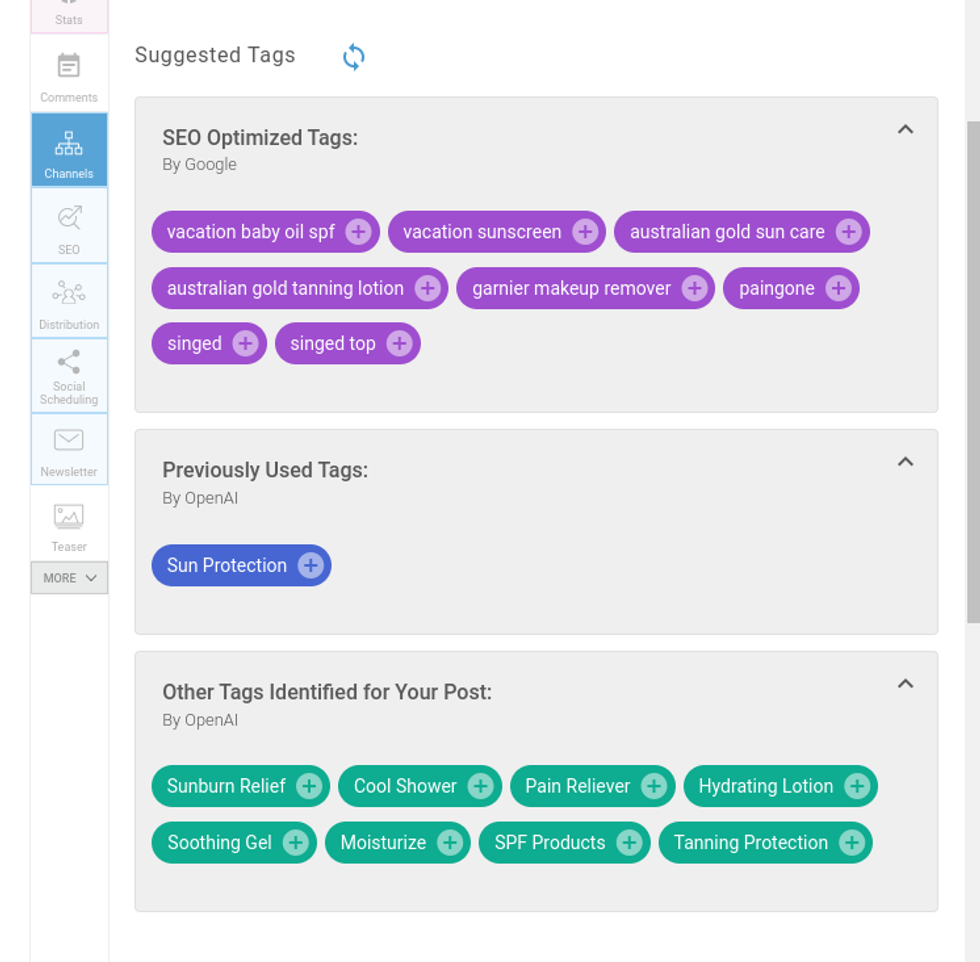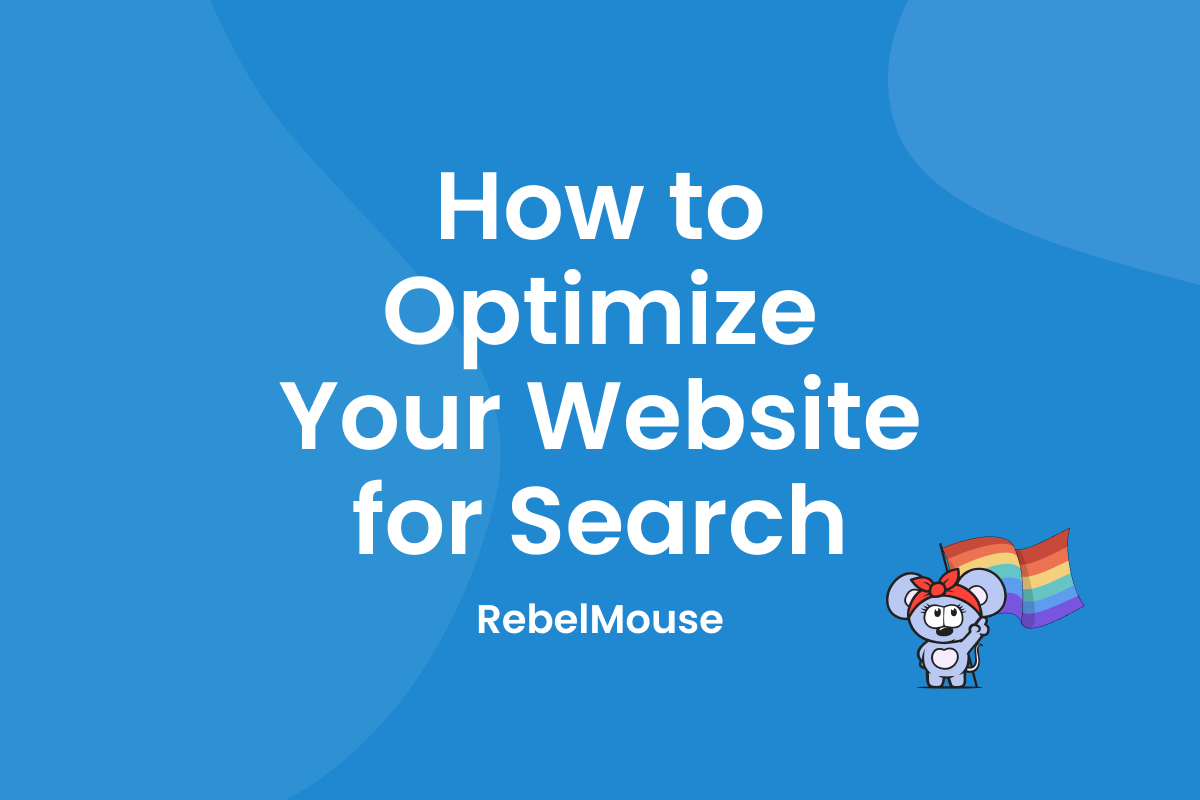
- RebelMouse’s High-Performing Search Strategy Checklist
- A Successful SEO Strategy Starts With Speed
- Prioritize Google's Core Web Vitals
- Make the Most of AMP
- Leverage the Right SEO Editorial Tools
- Define Your Search Phrase
- Match Your Slug to Your Search Phrase
- Pick Smart Recirculation Links
- Craft Metadata Before Publish
- Use Tags Backed By Data
- Structure Your Content to Reinforce Your Search Phrase
- Make the Most of Google's "People Also Ask" Module
- Use Alt Tags on Every Image
- Conquer Structured Data
- Be Mindful of H1 Tags
- Follow Google’s Image Guidelines
- Measure Success with Google Search Console
- Optimize Your Website for Search With RebelMouse
The RebelMouse platform features a rich search engine optimization (SEO) toolset that guides writers and editors to think about the right search phrase behind every story. It also empowers users to focus on small but meaningful modifications designed to improve organic search performance.
Here's a checklist of how we ensure the sites in our network consistently surge on search.
The RebelMouse platform features a rich search engine optimization (SEO) toolset that guides writers and editors to think about the right search phrase behind every story. It also empowers users to focus on small but meaningful modifications designed to improve organic search performance.
Optimize Your Website for Search: A Successful SEO Strategy Starts With Speed

From web.dev
How exactly Google determines search ranking largely remains a mystery for publishers, but what we do know is that the search engine continuously rolls out updates to its algorithm. And while sometimes these updates are small and nearly unnoticeable, other times they result in massive changes around the way Google crawls content, often disrupting the rankings of webpages all across the globe.
One of these massive disruptions came in June 2021 with Google's page experience update. Developers are now feeling the impact of how their publishing platforms stack up against the new standard.
The update means Core Web Vitals are now a major factor in Google Search's ranking methodology, and sites big and small that haven't been prioritizing performance have seen their organic traffic hit stumbling blocks as a result.
The update has solidified the do-or-die importance of page speed as a key ranking factor. All too often, sites with poor performance plummet off of Google Search's page one results.
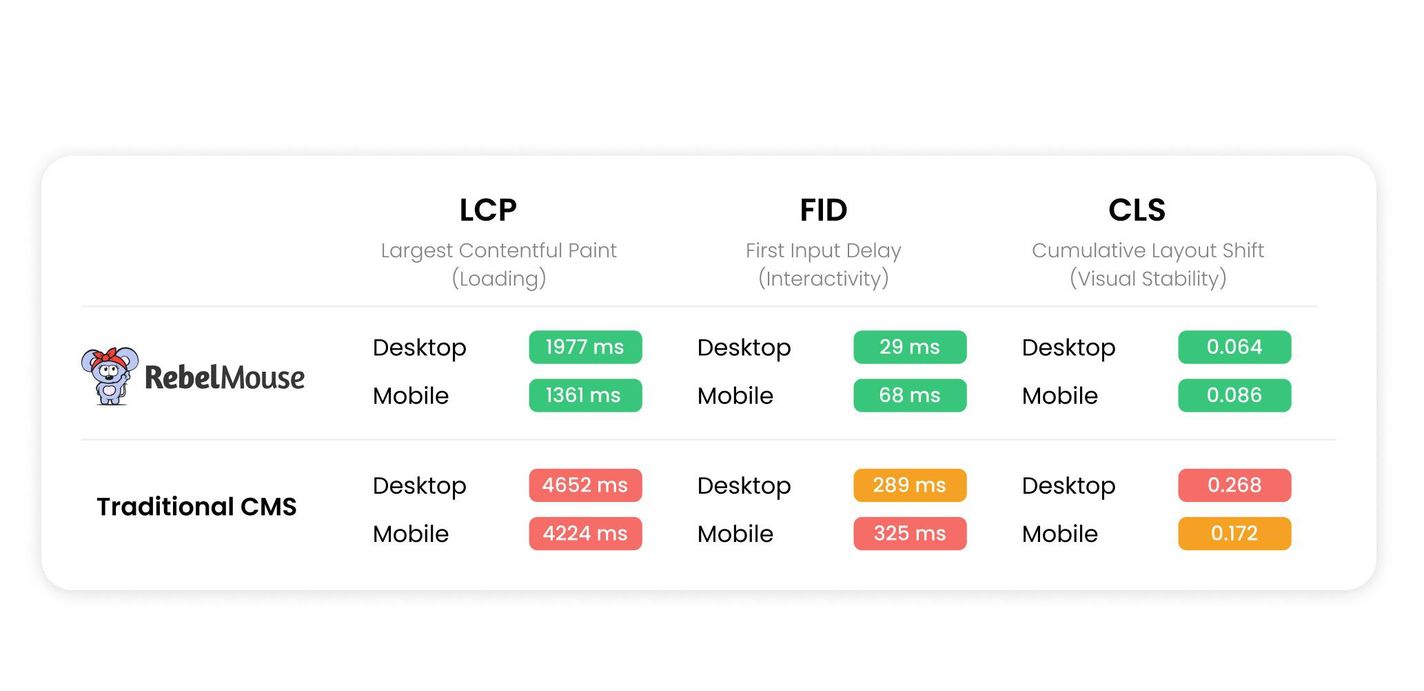
Core Web Vitals scores are critical to your search performance. RebelMouse outperforms traditional platforms on the metrics that matter most.
Optimize Your Website for Search: Prioritize Google's Core Web Vitals
Google has set a high bar for the open web on what top performance should look like, especially on mobile. The following is a brief description of Google's Core Web Vitals.
Largest Contentful Paint (LCP): A website's LCP is the time it takes to load the main content on a page. Google wants LCP to happen within 2.5 seconds of when a page first starts loading.
First Input Delay (FID): FID quantifies a user's experience when trying to interact with unresponsive pages. You want your FID score to be low to prove the usability of your site. According to Google, pages should haven an FID of less than 100 milliseconds.
Cumulative Layout Shift (CLS): CLS determines how often your users experience unexpected layout shifts or changes on a page. To ensure visual stability, you want your CLS score to be low. Google wants pages to maintain a CLS score of less than 0.1.
The RebelMouse Approach: We are able to outperform competitors on Core Web Vitals because site performance isn't just a goal, it's a company pillar that's woven into our culture. We use this focus on performance to help new media powerhouses and legacy brands alike make the most of the open web by growing traffic and building revenue without sacrificing user experience.
Through never-ending performance optimization, the sites powered by RebelMouse score higher on Google's Core Web Vitals over other CMS platforms, including WordPress.
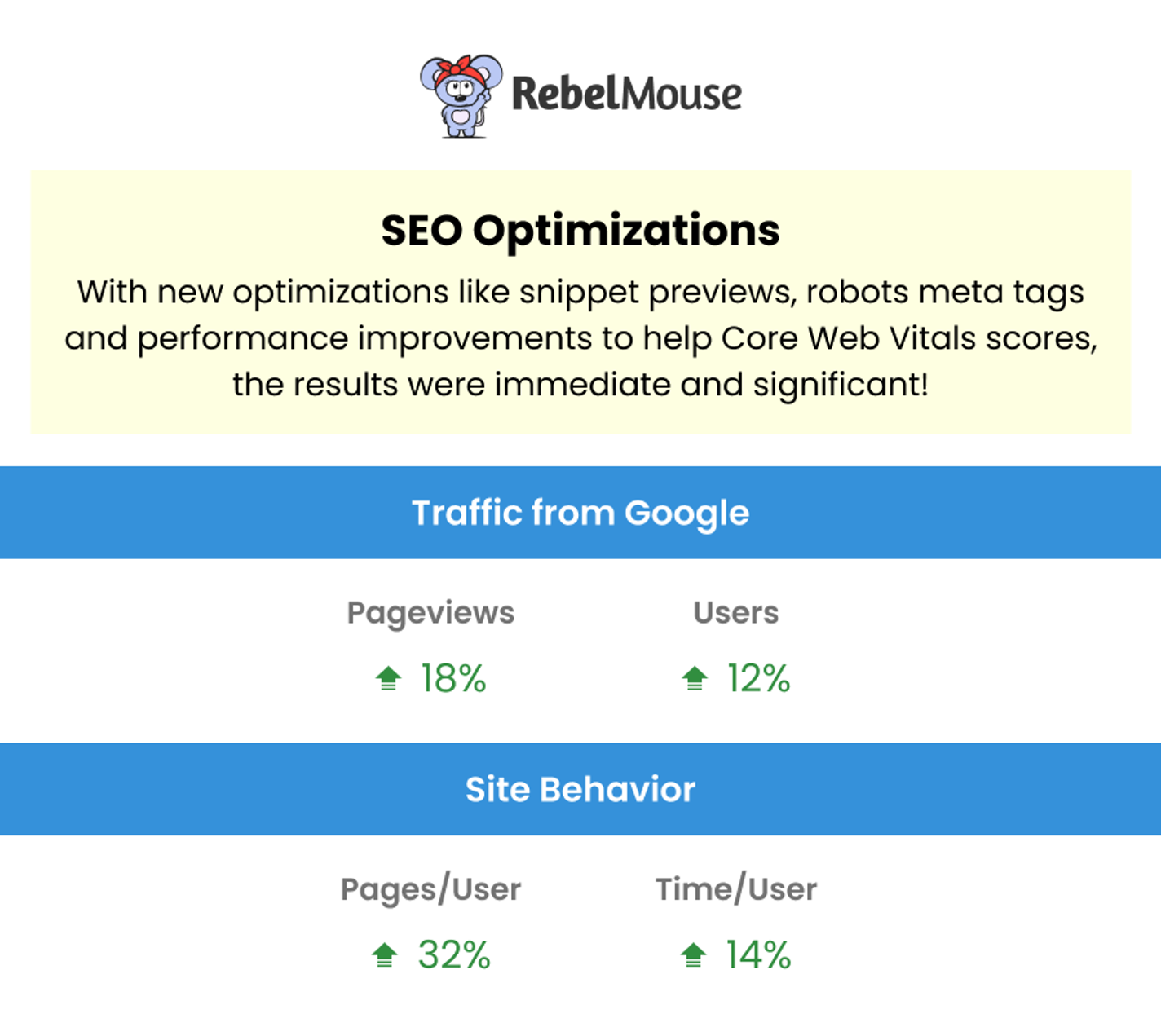
RebelMouse's SEO optimizations result in big traffic improvements.
Click here to learn more about how to improve your Core Web Vitals scores.
Optimize Your Website for Search: Make the Most of AMP
Google's Accelerated Mobile Pages (AMP) is a fantastic tool to increase mobile performance. The hyper-fast mobile format delivers a longer time on site for each reader, which encourages better conversion.
AMP pages are built to be fast and load almost instantly when clicked from Google Search, increasing user engagement and dropping bounce rates.
AMP is a rich environment, but implementing it properly can be time-consuming. AMP pages, in order to be fast, are highly structured, and companies need efficient tools to take full advantage of the opportunities that AMP provides. When implemented correctly, the impact on search traffic is remarkable.
The RebelMouse Approach: Our platform is fully optimized for AMP, and sites in our network use it as an often game-changing way to improve search performance.
Content creators can publish to AMP on RebelMouse with one simple click:
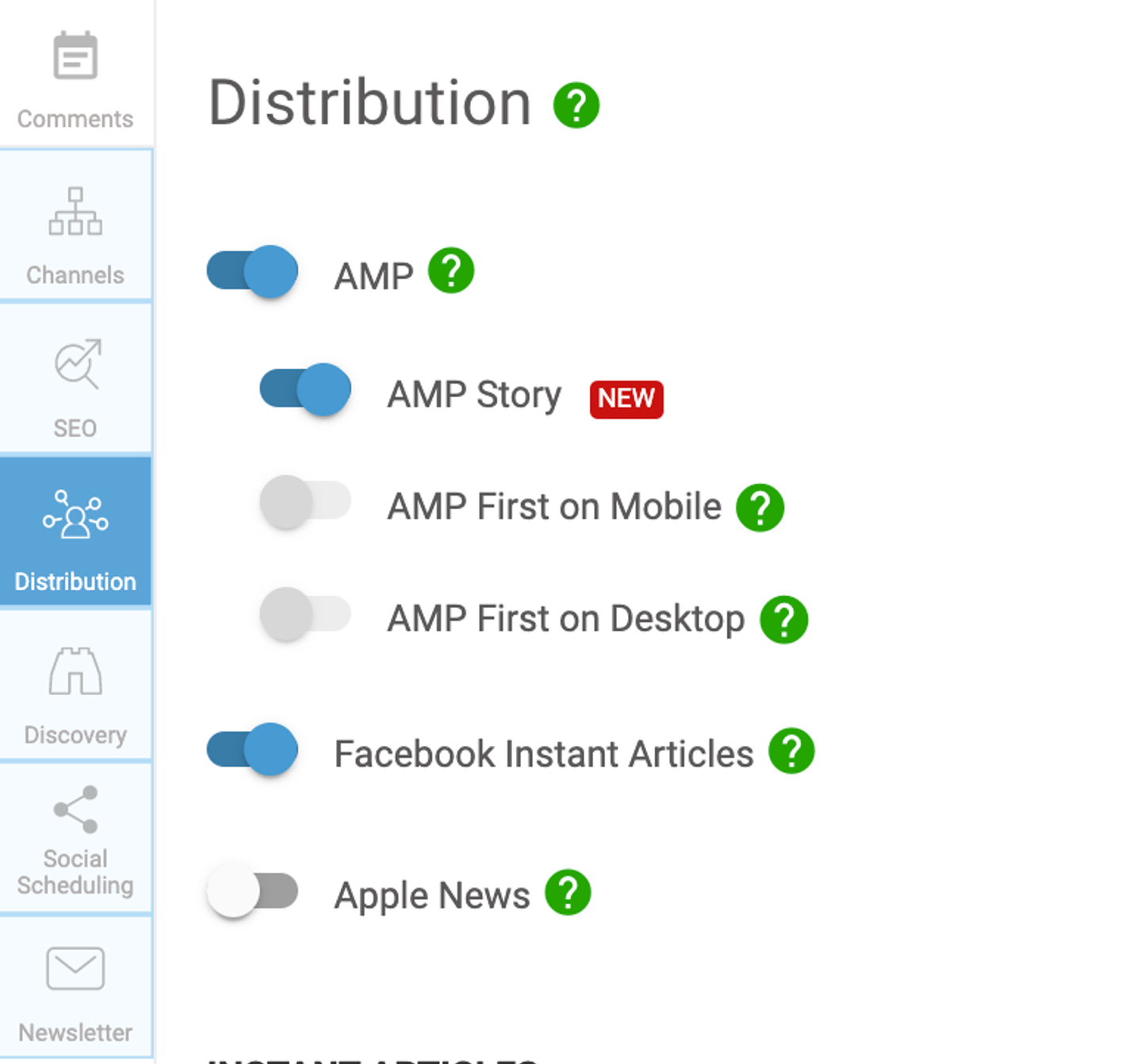
On RebelMouse, optimizing your content for AMP is a one-click process.
Plus, our team is constantly making little tweaks to improve AMP performance for our clients. For example, we automatically enabled a required large-image setting across our sites to optimize for Google Discover. While the update may seem small, it has resulted in a significant and positive impact on traffic when an article makes it into Discover's feed.
Check out the visible boost it gave one of our clients, as tracked by Google Search Console:
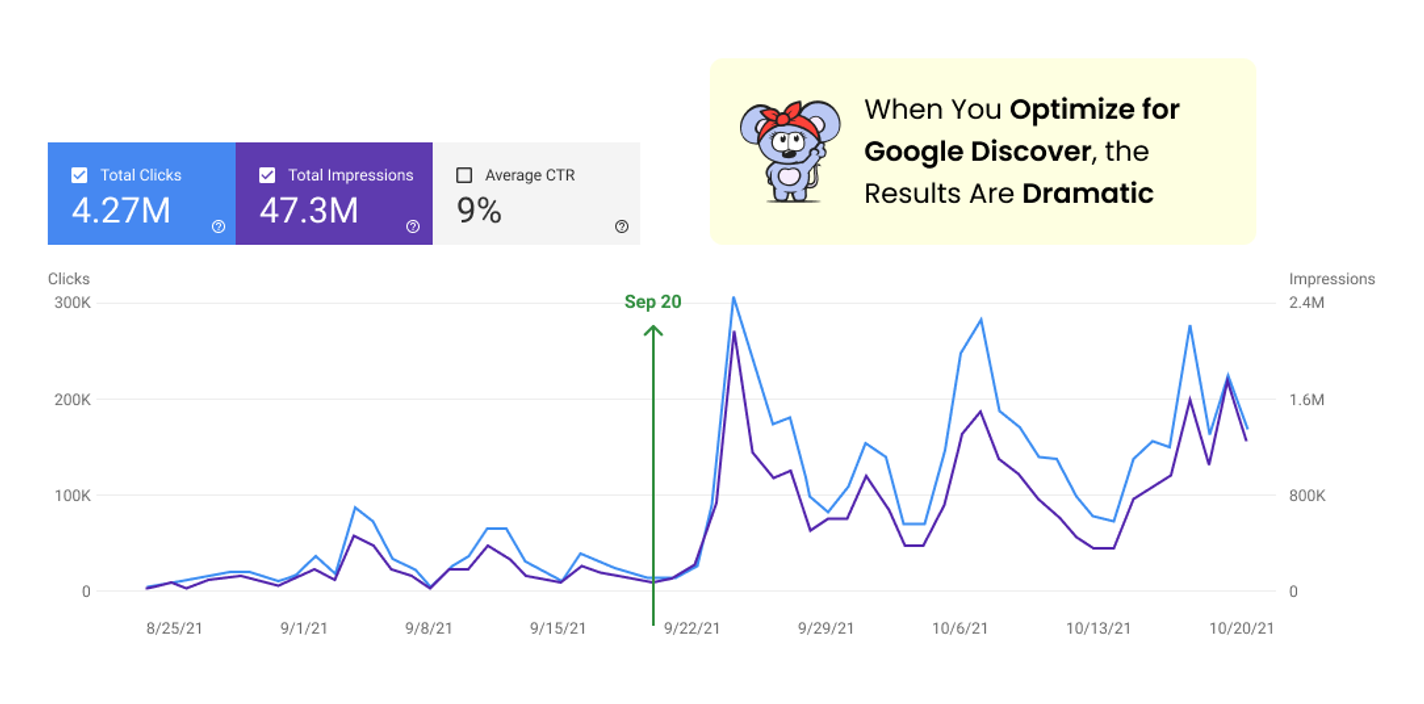
Our behind-the-scenes optimizations on AMP drive boosts to readership.
Click here to learn more about RebelMouse's AMP optimization.
Optimize Your Website for Search: Leverage the Right SEO Editorial Tools
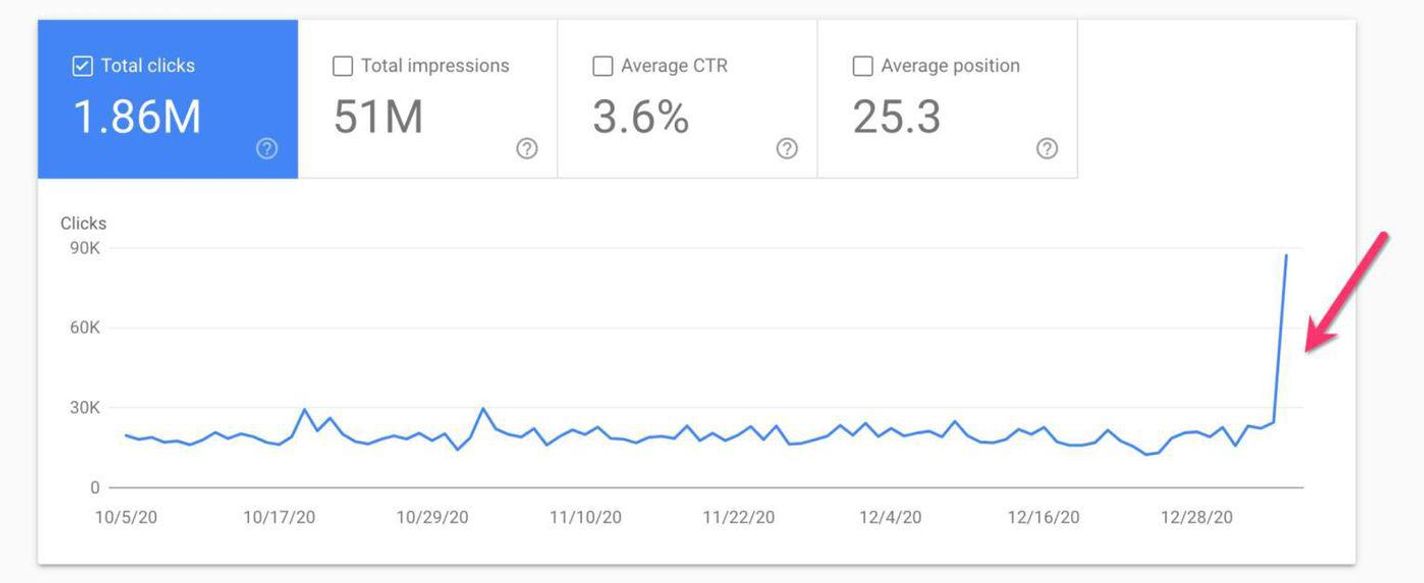
RebelMouse's SEO tools increase search traffic.
Our SEO technology centers around best practices for search, including detailed metadata that helps Google's site crawler identify, index, and rank your content quickly.
Here's a look inside our proprietary technology that helps our clients experience quick search boosts that turn into long-term SEO wins.
How to Optimize Your Website for Search: Define Your Search Phrase
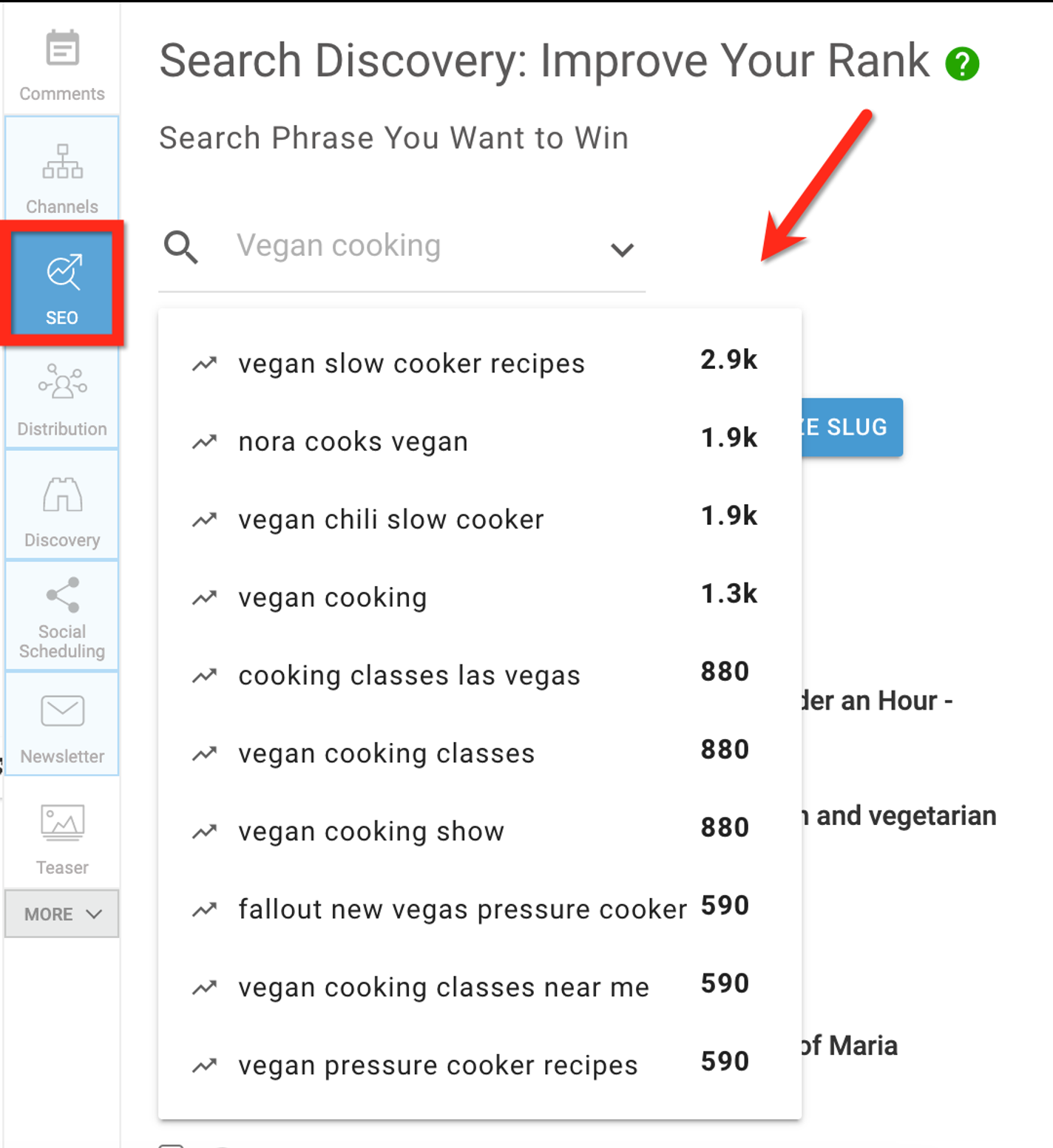
It can be tricky to nail down which search phrase you want to win. Within RebelMouse's SEO tab, you can brainstorm your ideas in real time. Through the creative usage of APIs, we ensure writers and editors are armed with the right information when optimizing content for SEO. In the example above, the drop-down list is suggesting search phrases that are already performing well on Google. The number next to each recommended phrase is its monthly search volume.
This helps you determine which phrases are easy to win, or perhaps too competitive to strategize for, on an article-by-article basis. Click here to learn more about this feature.
How to Optimize Your Website for Search: Match Your Slug to Your Search Phrase

Easily update your URL slug to match your desired search phrase on RebelMouse.
The SEO tab in our Entry Editor is designed to repeat your desired search phrase throughout your content so that Google's crawler has every chance to index it correctly for search. With this methodology in mind, it's a best practice to have your article's URL slug match your desired search phrase. From the SEO tab, you can click the "Optimize Slug" button to automatically match your URL slug to the search phrase you want to win.
Click here to learn more about this feature.
How to Optimize Your Website for Search: Pick Smart Recirculation Links
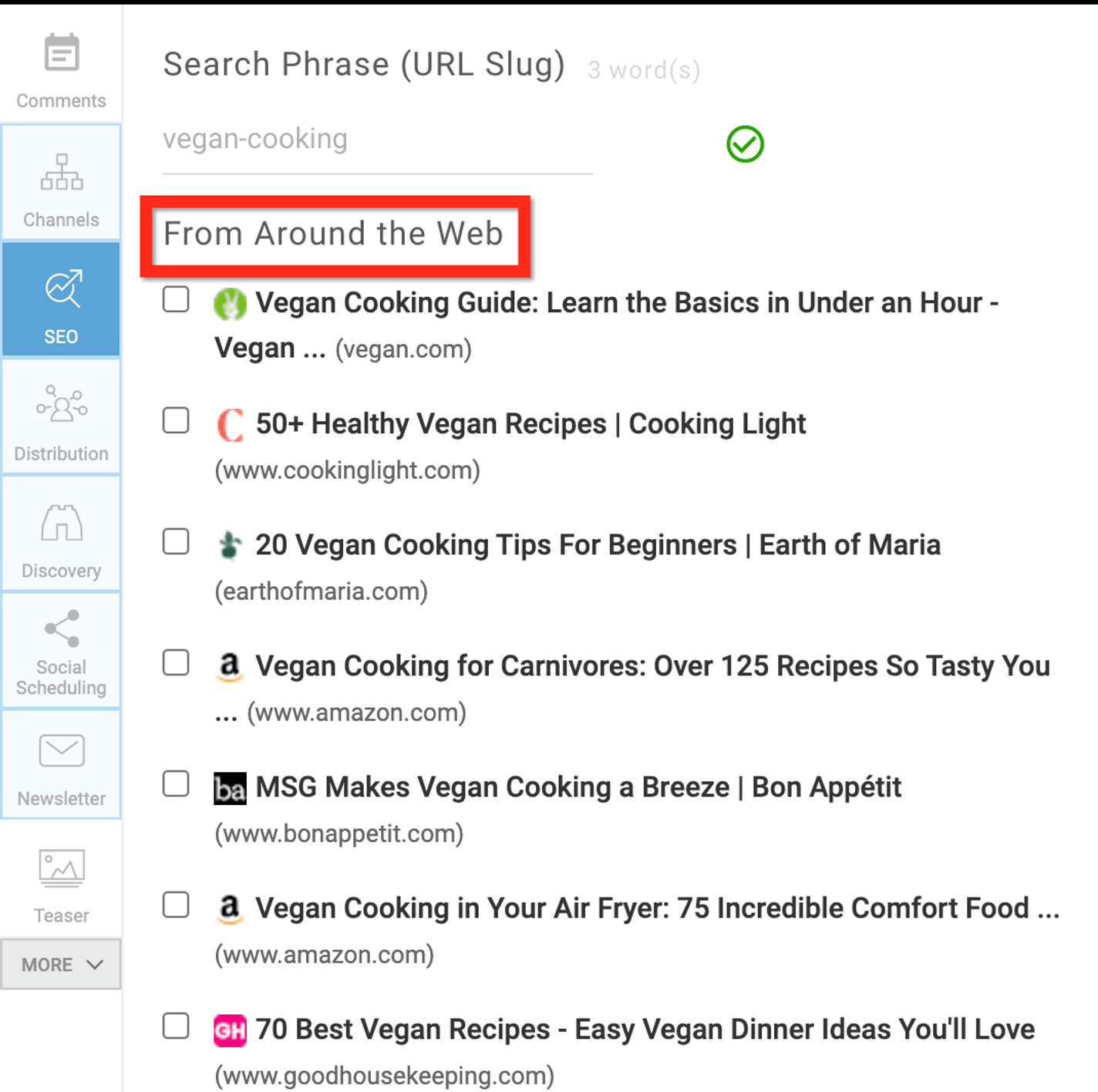
Access outlinks for your search phrase directly from RebelMouse's editing interface.
After you've defined your search phrase and optimized your URL slug accordingly, you can select highly relevant links to add as related content to the end of your article. We call these Around the Web (ATW) links. The SEO tab in our Entry Editor allows you to pick the best links from your own site, as well as from around the web, which leads to truly amazing traffic boosts. This is a proven SEO practice that's rewarded by Google. Since your article will link to pages already winning your search phrase, it can increase your own post's relevance score in the eyes of Google's crawler.
We automate the surfacing of both ATW and internal links for you, so it's as easy as ticking a handful of checkboxes to add them to your post. We've also done the math, and the data is clear: Adding ATW and internal links to the end of your articles can increase traffic coming to your posts from Google by over 300%!
Click here to learn more about this feature.
How to Optimize Your Website for Search: Craft Metadata Before Publish
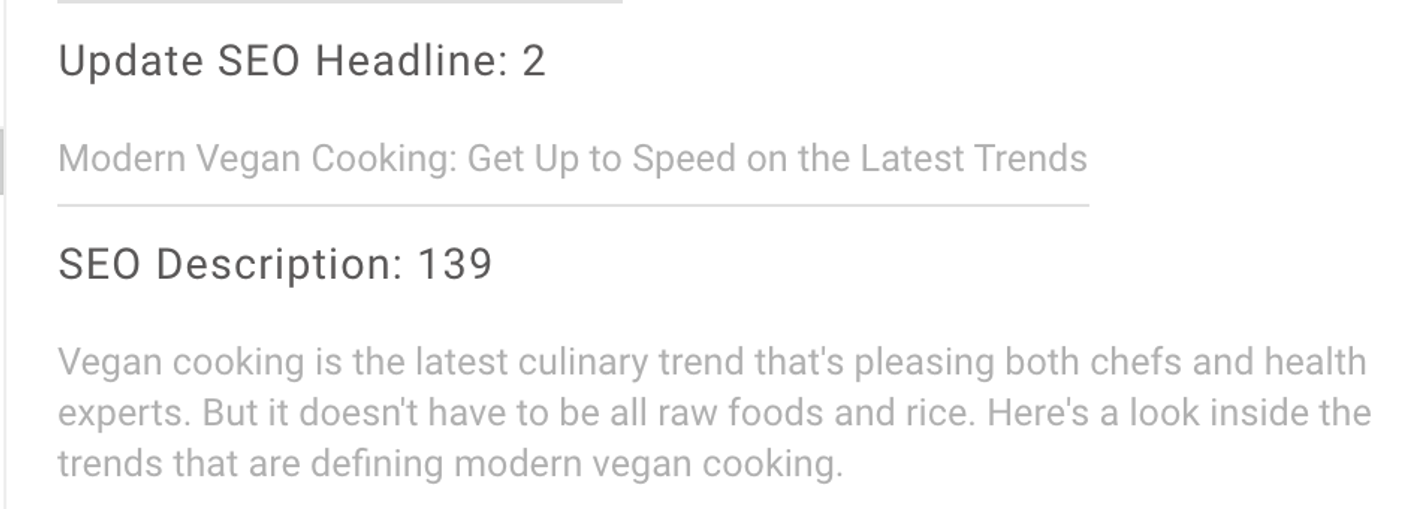
Update your content's metadata easily on RebelMouse.
When it comes to Google's site crawler, providing clever metadata is one of the best ways to contextualize your content for search. From there, Google's search algorithm will rank your site for search queries that it determines are relevant to your content. Our SEO tab allows you to write your metadata right from within our Entry Editor. Plus, our character counter will help you make sure that your SEO headline and description match Google's best practices for metadata text length.
It's important to make sure your metadata is clearly written in a succinct way so that Google can quickly understand the nature of your content.
Click here to learn more about this feature.
How to Optimize Your Website for Search: Use Tags Backed by Data
Take the guesswork out of your site's tagging structure with smart suggested tags within our Entry Editor.In the Channels tab, you will see SEO Optimized Tags, which are suggested tags based on data from your site's Google Search Console account.
Previously Used Tags are tag suggestions generated by OpenAI based on the content within your article's body that have been previously used across other content on your website.
Other Identified Tags for Your Post are tag suggestions generated by OpenAI that are relevant to the content within your article's body, but have never been used before across other content on your website.
How to Optimize Your Website for Search: Structure Your Content to Reinforce Your Search Phrase
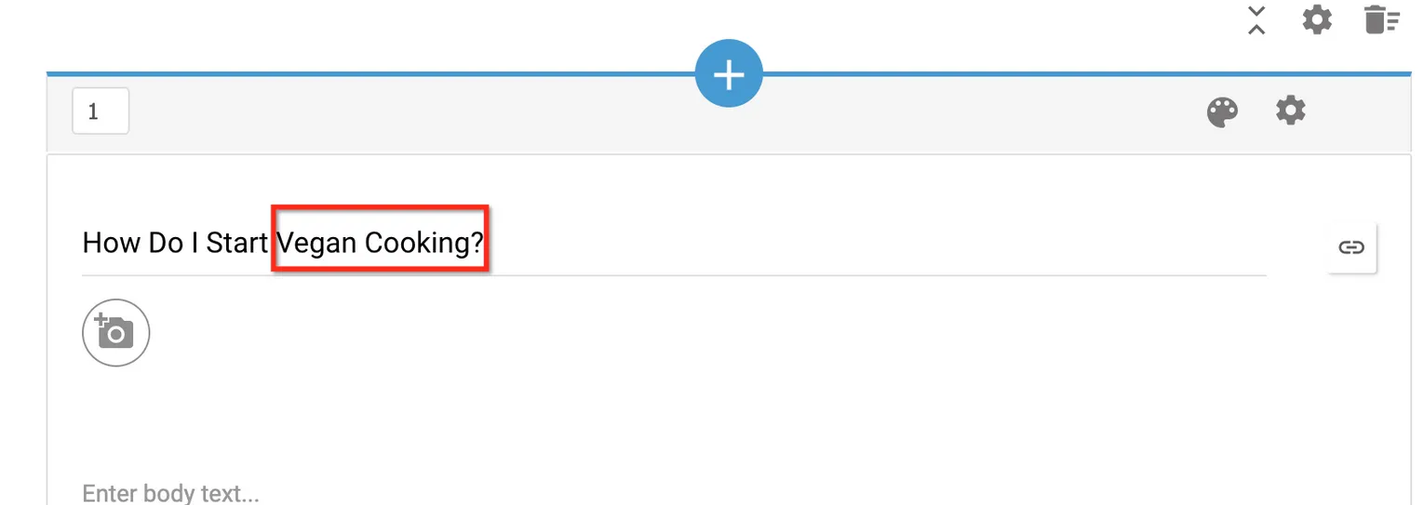
RebelMouse's Particle Assembler is a content creation tool within our Entry Editor that makes it easy to transform your posts into media-rich micro pieces of content, which we call particles, that can both be shared individually and crawled separately on search. Our Assembler functionality gives your content more legs, which means more chances to generate more traffic.
Assembler is accessible via a couple of clicks in the formatting toolbar of our Entry Editor. From there, an organizational layout gets inserted into your article that guides you through the process of building out the particles that will shape your Assembler.
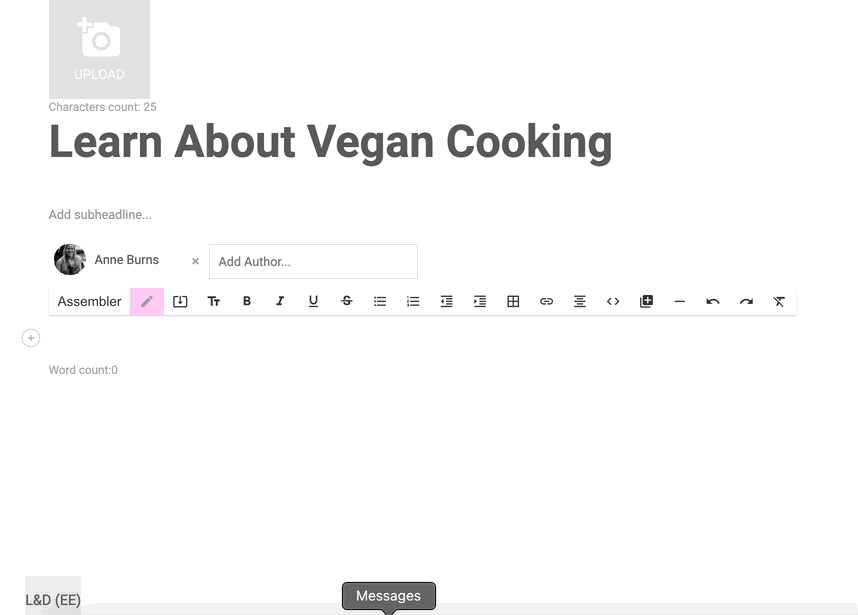
A look at how to add particles in RebelMouse's Assembler.
The best way to think of Assembler is by treating it as an enhanced list format. If your article is about vegan cooking trends, each particle can feature a new trend. But Assembler does not need to be a simple list. It can also cover the main points of your article and feature user-generated content or even related stories.
Click here to learn more about this feature.
How to Optimize Your Website for Search: Make the Most of Google's "People Also Ask" Module
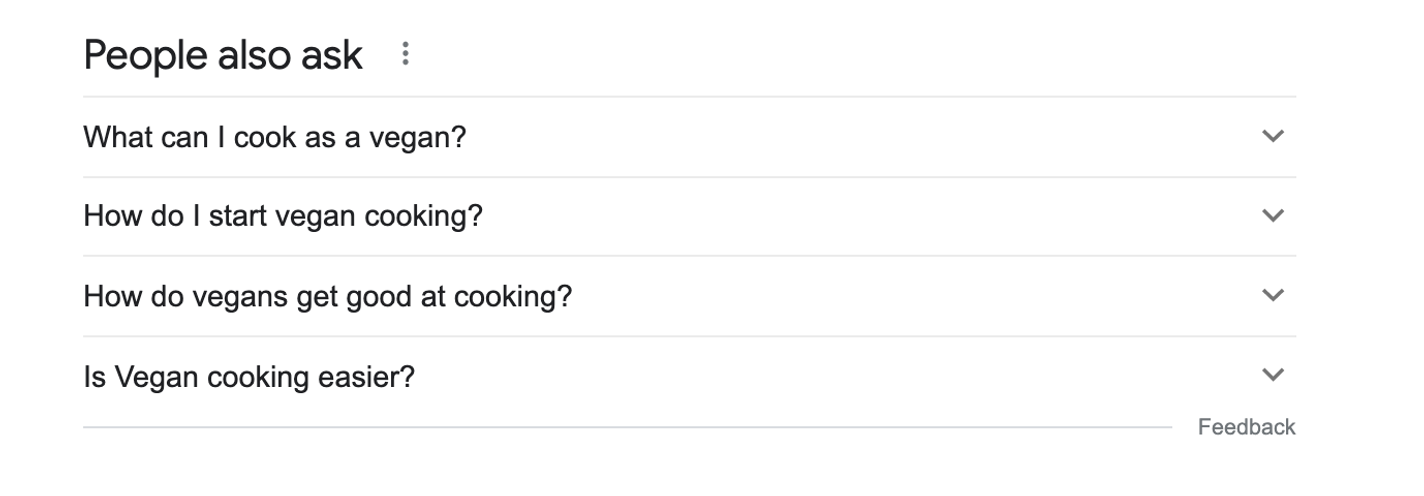
Strategize search phrases to win with Google's "People Also Ask" feature.
Particles are a great way to make use of Google's "People Also Ask" module. This will help you identify search patterns of users who are interested in your search phrase. By tailoring your particles to those patterns, it's likely that your post will move up in Google's search rankings.
Click here to learn more about this strategy.
How to Optimize Your Website for Search: Use Alt Tags on Every Image
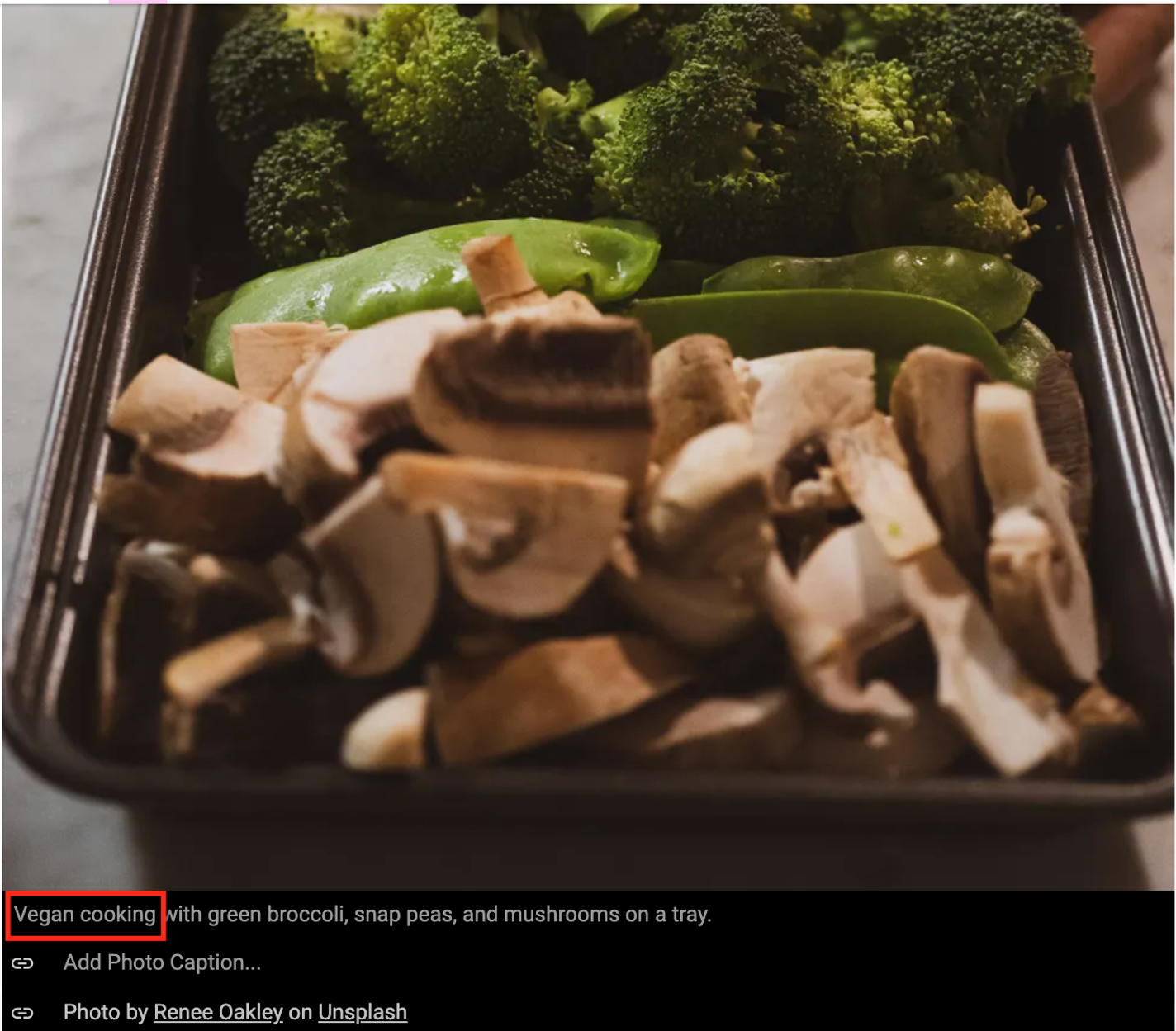
Easily update alt text with your desired search phrase on RebelMouse.
Each particle is another opportunity to add relevant media to your post, and Assembler makes it easy to add alt text to every image you upload. Alt text is very important for accessibility, and can also have benefits for SEO. Briefly, alt text is text that is added to an image to describe it to search engines. It also allows people using screen readers to be able to know what the image is without actually being able to see it. You can easily add alt text to any image in RebelMouse from our Entry Editor. Adding your search phase into every alt text field will only bring you one step closer to the top of Google Search's first page.
How to Optimize Your Website for Search: Conquer Structured Data
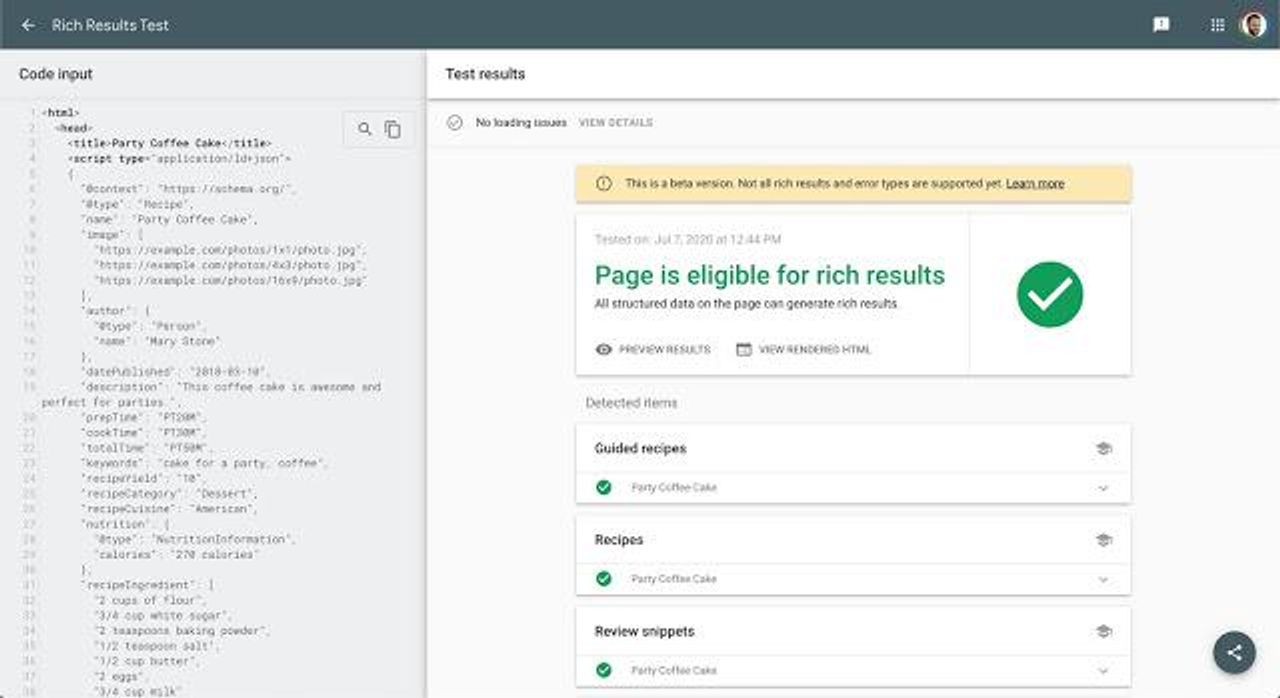
Google's Rich Results Test tool will make sure your structured data is entered properly.
Google's algorithm is now savvy about robotically written articles designed to win a specific set of keywords. As Google's search engine has gotten smarter, its web crawler software, known as "Googlebot," has also evolved in terms of how it indexes data.
But what if you could tell Googlebot the story of your website so that it doesn't have to make any assumptions? This is possible through the use of structured data, or as Google describes it, a set of "clues" provided to its crawler about what defines your content. Using schema, or a vocabulary you share with Google about every page on your site, you can tell Googlebot the story of your content in human language.

Rank higher on search by populating structured data for Google's snippets on search returns.
By following these rules, you're giving the search engine explicit clues about the meaning of a page. Structured data is a standardized format for providing information about a page and classifying its content. For example, on a recipe page, these classifying components could be ingredients, cooking time, temperature, and nutritional information.
The better Google's crawler can understand your content, the more easily it can index it highly on search.
The RebelMouse Approach: If structured data sounds like a big undertaking, it doesn't have to be. Every RebelMouse site automatically populates key structured data so that Google can better understand your site. This, in turn, optimizes your pages to win in search results. Our out-of-the-box integration populates all the standard schema data with information about article content. This works on desktop and mobile web, and the data also gets populated for Google AMP.
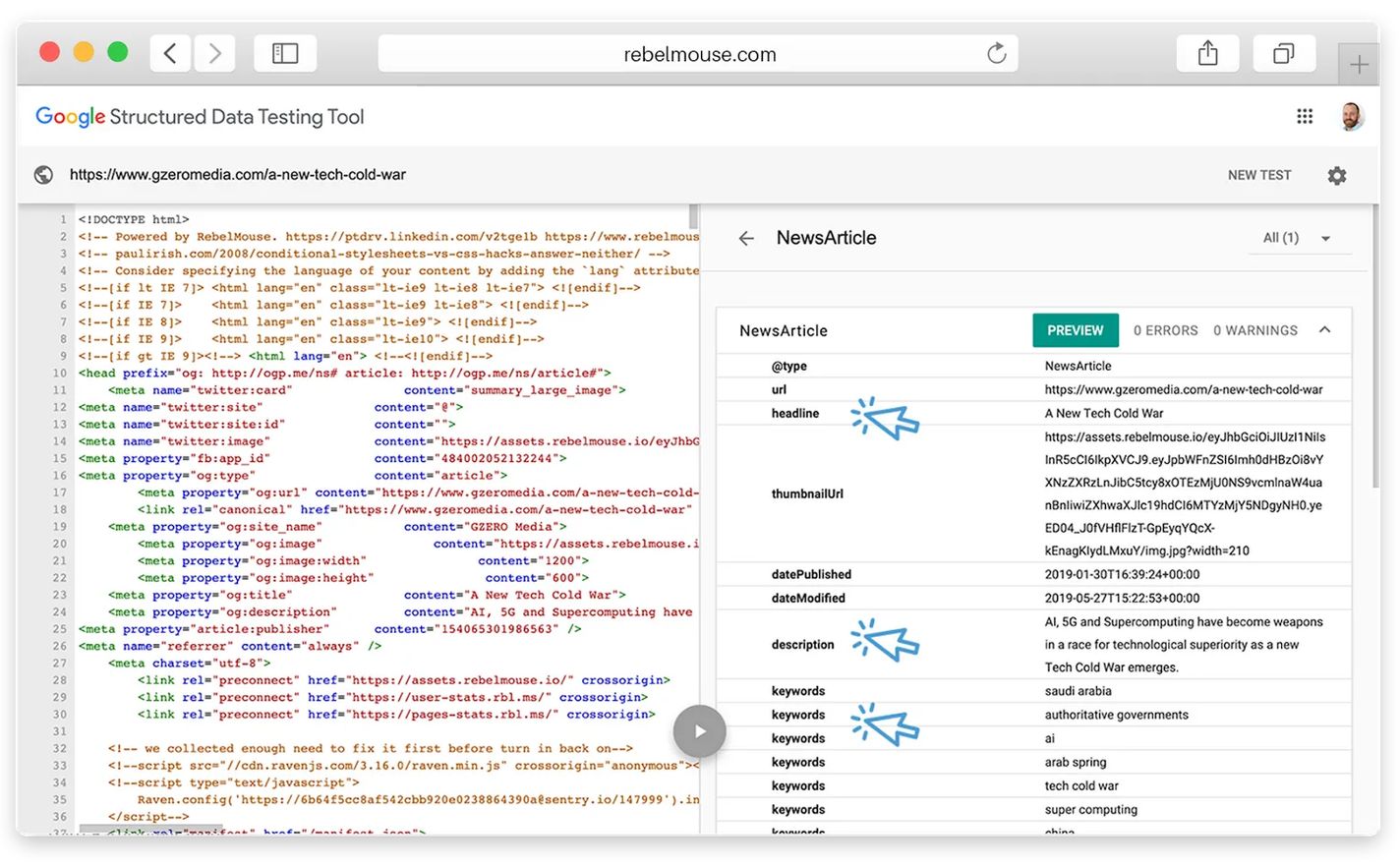
RebelMouse properly marks up structured data for content with our out-of-the-box integration.
Click here to learn more about our out-of-the-box structured data integration.
How to Optimize Your Website for Search: Be Mindful of H1 Tags
To put it simply, an H1 tag is a piece of HTML, or HyperText Markup Language, that marks the heading of your web page. Here's an example:
This Is the Title of My Content
For SEO purposes, H1 tags are designed to win a specific search phrase for your page. In fact, a recent study from Moz found that the HTML title tag is the second-most important ranking factor for SEO, behind only the actual content of the post.
This is because Google recognizes the H1 tag as the highest-level tag on your page. Think of it as your chance to summarize what your content is about clearly and succinctly for Google's web crawler. The more accurate and relevant you make your H1 content, the easier it is for Google to index it for search.
When writing HTML, there are six different heading tags available to you: H1, H2, H3, H4, H5, and H6. Each heading has a different font weight. You can use this scale to organize your content's headlines and subheadings accordingly.
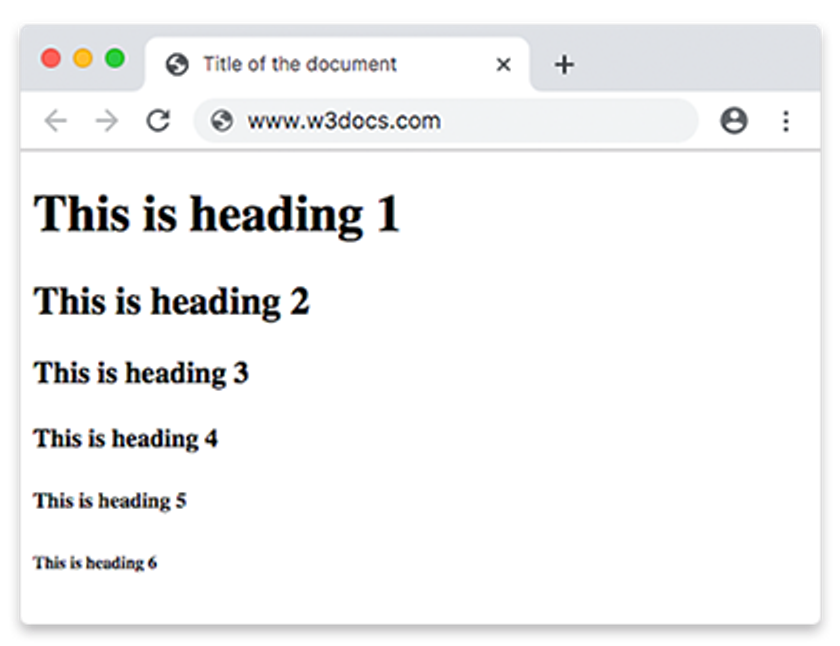
Example of headings from W3docs.
The RebelMouse Approach: You can easily choose your desired heading in RebelMouse's Entry Editor by using the formatting toolbar:
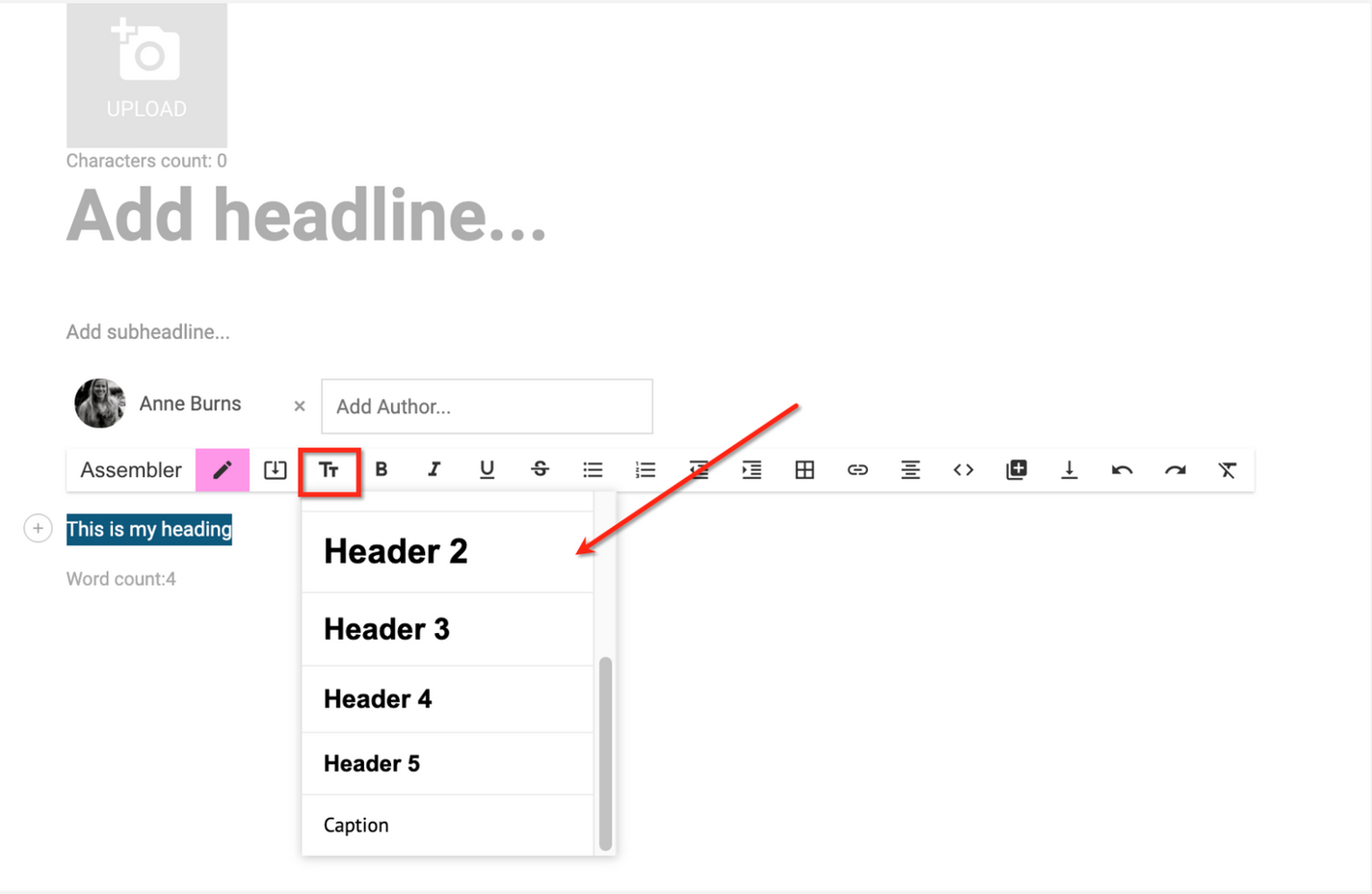
Select which headings you want to use right from RebelMouse's editing interface.
Once you choose your heading, it's automatically reflected in your site's code:
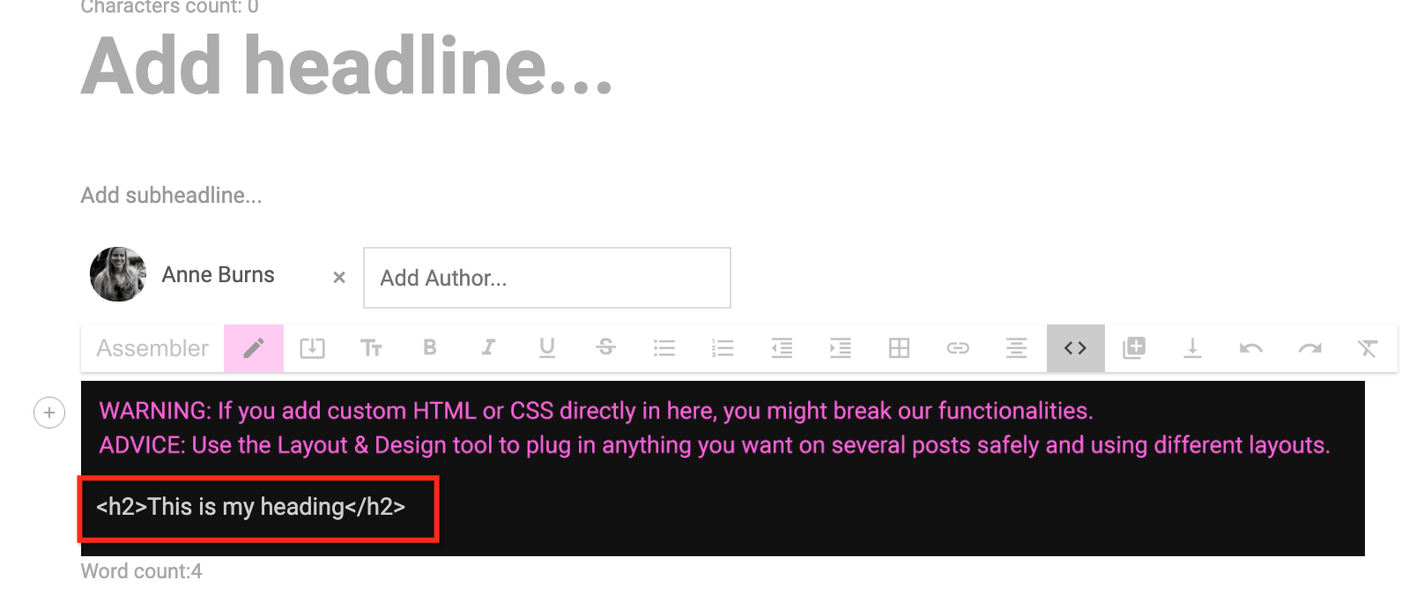
RebelMouse's headings are automatically implemented correctly to your site's code for search.
Note: You may have noticed that the H1 tag is not an option you can select in the formatting toolbar's drop-down menu. That's because it's best practice to use only one H1 tag per page. On our platform, we reserve the H1 designation for your article's headline. This is inputted into your site's code automatically.
Click here to learn more about H1 tags.
How to Optimize Your Website for Search: Follow Google’s Image Guidelines
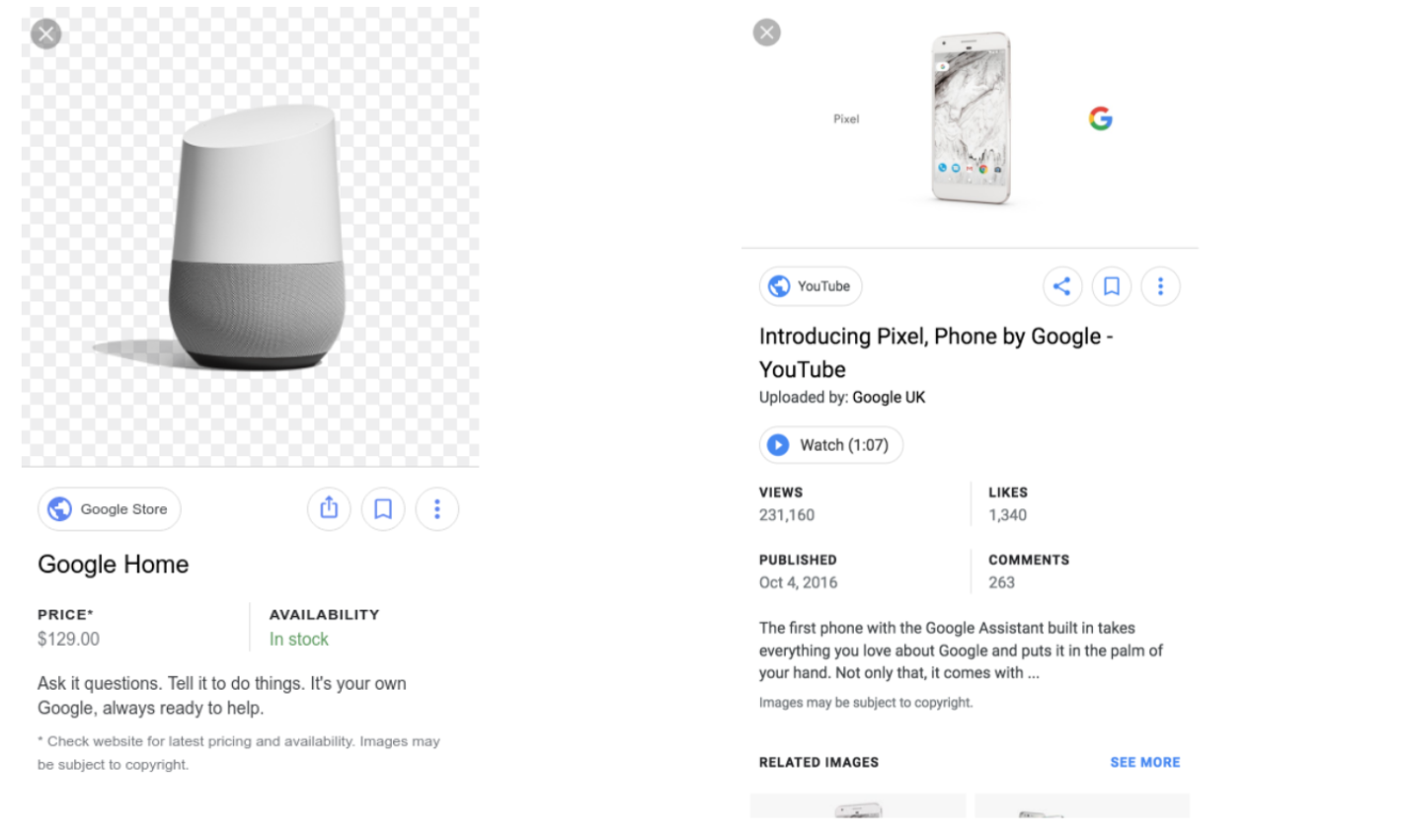
An example of Google Images information populated by structured data. Image from Google.
Google Images is undoubtedly the leader in image search online, and they have many guidelines on how images should be handled. Here at RebelMouse, we make sure that your site is able to follow those guidelines right out of the box. Google's recommendations fall under a number of general topics:
- A great user experience
- Be descriptive
- Structured data
- Speed
- Alt text
- Make images discoverable
The RebelMouse Approach: Being certain that everything on your site is optimized both for performance and for following Google Search's guidelines is an exhausting task. Fortunately, RebelMouse takes that worry out of your hands by building our platform around the principles of page experience and the belief that all sites built on our platform should be flawless. We follow all best practices for Google Image's guidelines.
Click here to learn more.
How to Optimize Your Website for Search: Measure Success with Google Search Console
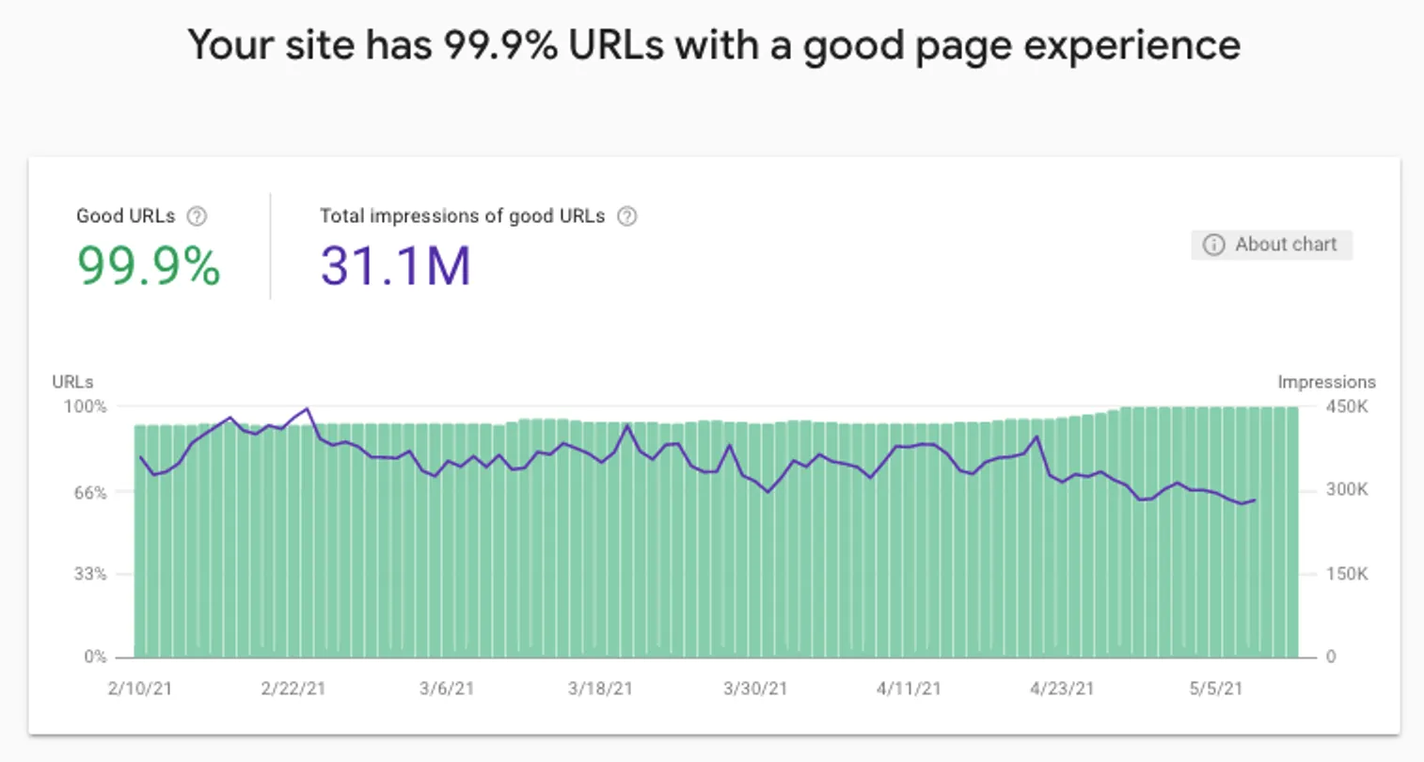
A look at page experience data from Google Search Console.
Google Search Console is a free tool that helps you to understand and optimize your site's performance on Google Search. When Google visits your website for tracking purposes, it performs what's called crawling and indexing, a process of adding web pages into its search results.
Search Console will allow you to add or remove certain content from Google Search's results. The tool will also help you learn which keywords trigger your site to appear in Google's search engine results page (SERP), as well as which third-party sites are linking to yours. It also allows you to monitor your site's performance on search, including locating any errors on your pages.
The RebelMouse Approach: We offer full support to help our clients connect their sites to Google Search Console. Our strategy services also help you understand which content and site layouts are working the best for your audience through our custom Google Looker Studio dashboards.
Optimize Your Website for Search With RebelMouse

Google owns most of the referral traffic on the internet, and your site should reflect this reality. That's why the sites on our network follow all of Google's webmaster guidelines.
RebelMouse's proprietary technology works for any kind of site, whether you're a brand, a new media company, or a legacy publisher. SEO doesn't have to be something that only developers and analysts can understand and augment. Our product is designed to put the power of search in the hands of content creators, editors, and social curators, too.
New: We can also solve your site's internal search problem with AI. Click here to learn more.
Start winning on search with every publish. Get in touch with us today and let's start working together.
